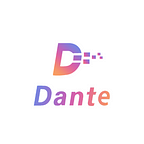Dante Network-Open Source Process (GitHub)
As we mentioned in our whitepaper, the implementation of the project is mainly divided into three stages, the advance stage, privacy verification stage, and the privacy transaction stage. Currently, our team is carrying on the development work on the advance stage based on the results of preliminary research and development. And now we open partial source of the pre-work and current progress to communities, including pre-work of Cryptography for privacy preserving and other program related contents like contract, auto-tools, etc.
GitHub Page
GitHub Page: https://github.com/dantenetwork/dantechain.com
Program development
Multisigniture contract
The development of this part has been finalized. It won’t be open source temporarily. This part belongs to Dante Network’s security mechanism contents, will be applied into implementation, upgrade and admin operation of contract service.
Storage service contract
The development of this part is still ongoing. It will be open source after full testing work finished.
Lock position contract
The development of this part is still ongoing. It will be open source after full testing work finished.
PRC-20 Contract
The development of this part is still ongoing. It will be open source after full testing work finished.
Pre research on privacy storage
Zero-++Proof (ZKP)
The contents of this part will be applied to realization of off-chain verifiable storage and on-chain privacy transactions in Dante’ following two stages.
- Gnark: it is a fast zk-SNARK library that offers a high-level API to design circuits. The library is open source and developed under the Apache 2.0 license.
- Libsnark: a C++ library for zkSNARK proofs.
- Snarky: snarky is an OCaml front-end for writing R1CS SNARKs. It is modular over the backend SNARK library, and comes with backends from libsnark.
TEE (Trusted Execution Environment)
The contents of this part are applied to Dante’s first stage to support off-chain verifiable storage.
- Linux-sgx:Intel(R) Software Guard Extensions (Intel(R) SGX) is an Intel technology for application developers seeking to protect select code and data from disclosure or modification.
Homomorphic Encryption
The contents of this part will be applied to realize decentralized encryption and decryption mechanisms on the privacy verification stage, and the privacy transaction stage of Dante.
- SEAL:Microsoft SEAL is an easy-to-use open-source (MIT licensed) homomorphic encryption library developed by the Cryptography and Privacy Research Group at Microsoft. Microsoft SEAL is written in modern standard C++ and is easy to compile and run in many different environments.
- HElib:HElib is an open-source (Apache License v2.0) software library that implements homomorphic encryption (HE). Currently available schemes are the implementations of the Brakerski-Gentry-Vaikuntanathan (BGV) scheme and the Approximate Number scheme of Cheon-Kim-Kim-Song (CKKS), along with many optimizations to make homomorphic evaluation runs faster, focusing mostly on effective use of the Smart-Vercauteren ciphertext packing techniques and the Gentry-Halevi-Smart optimizations.
- Fully-homomorphic-encryption (FHE):This repository contains open-source libraries and tools to perform fully homomorphic encryption (FHE) operations on an encrypted data set.
Secure Multi-Party Computation(MPC)
The contents of this part will be applied to realize decentralized encryption and decryption, privacy contracts and privacy transactions on the privacy verification stage, and the privacy transaction stage of Dante.
- CrypTen: CrypTen is a framework for Privacy Preserving Machine Learning built on PyTorch. Its goal is to make secure computing techniques accessible to Machine Learning practitioners. It currently implements Secure Multiparty ComputationSecure as its secure computing backend.
- MP-SPDZ:Software to benchmark various secure multi-party computation (MPC) protocols such as SPDZ, SPDZ2k, MASCOT, Overdrive, BMR garbled circuits, Yao’s garbled circuits, and computation based on three-party replicated secret sharing as well as Shamir’s secret sharing (with an honest majority).
Development tool
- Client-sdk-python: Wwb3.js realization on Python. It is used as tool for developing automated tools and community construction.
- Client-sdk-js:Web3.js Interactive interface of PlatON node. It is used to develop storage node and requesting node.
- Platon-truffle:it is a development environment, testing framework and asset pipeline for PlatON.
- PlatON-CDT:it is a toolchain for WebAssembly(WASM) and a set of tools to facilitate contract writing for the PlatON platform.
- Platon-random-wasm:Using economic models to generate decentralized random numbers in the public domain.
- solidity:is a statically-typed curly-braces programming language designed for developing smart contracts that run on Ethereum, applied into preliminary development of community construction tool.
Following plan
The following emphasis of work will concentrate on detailed off-chain and on-chain design, development and testing of the node, as well as build and test the test-net. It is estimated that the development code for the contract part will be made open source at the beginning of September on GitHub, the code of the node part will be open source at the beginning of October, and the testing code will be open source at the beginning of December. Importantly, the mainnet of Dante Network is estimated to launch in the first quarter of 2022.
Summary
We intend to build an open source community in order to have a tight connection with the friends who have the same interests. An open source community benefits all tenants of the community to iterate the code or further development. Overall, we are always welcoming all true enthusiasm to join our community, meanwhile, we will try our best to continuously refine the construction of our community.
Exploring more Dante details please check the following link:
Dante Website: https://dantechain.com/index_en.html
Dante Twitter: https://twitter.com/DanteNetwork
Dante Telegram: https://t.me/Dante_Network
